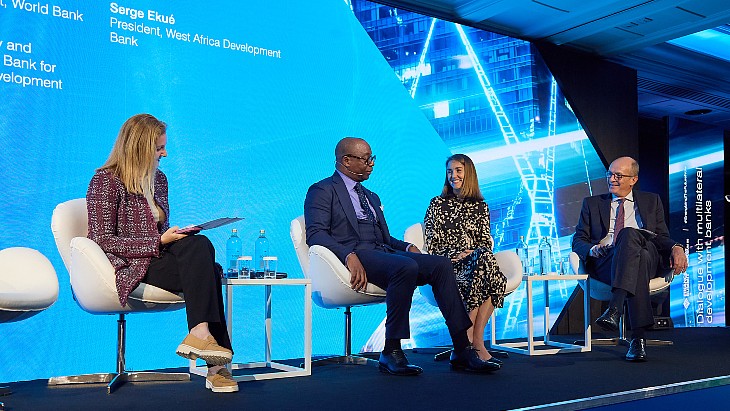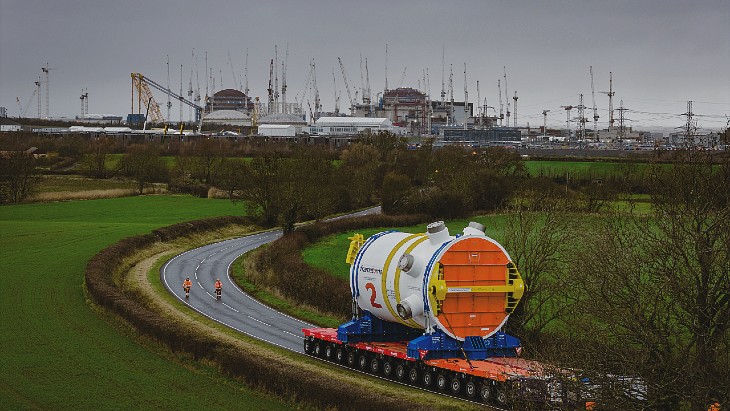Mark Bowman, vice president for policy and partnerships at the European Bank for Reconstruction and Development (EBRD), told World Nuclear Association's Finance Summit in London, that across its 35-year history the bank had been involved in donor and loan funding in the field of nuclear safety, decommissioning and environmental remediation.
This work included long-running involvement with the Chernobyl site, with the giant New Safe Confinement probably the best known EBRD nuclear safety-related project. That work continues, including to repair the damage caused to its roof by a drone in February.
Speaking at the event, alongside fellow multinational development banks, he said that with nuclear emerging as a "key contribution to the transition to low carbon economies" and to energy security, the bank "can add significant value with our long experience in nuclear safety to ensure safety and sustainability remain top priorities".
"As a bank with a private sector mandate, we have limited capacity to support large sovereign projects, but we are very keen to engage with private companies throughout the sector and through supply chains," he said.
"There is nothing in our mandate that prevents us investing in nuclear energy. Historically, though, traditionally our board has taken a cautious approach and restricted our activities to the nuclear safety space. But I think it is important to note that views are evolving. There is a change in the balance of views in our board amongst our shareholders. And I think it's very likely in the not-too-distant future we will be bringing projects to our board," he said.
These would not be just the traditional type of areas EBRD has supported but could include long-term operation, supporting safety uprates and also looking at small modular reactors (SMRs) and advanced modular reactors "where we're engaging early with developers and regulators, very much monitoring developments and assessing where and whether investments could be made".
There would also be involvement with reconstruction in Ukraine as well as considering investment in helping countries diversify nuclear fuel supplies and supply chains and supporting newcomer countries with areas such as regulatory frameworks and helping with decommissioning planning and waste management to help ensure sustainability.
He said the EBRD was developing its coordination with organisations such as the International Atomic Energy Agency and with other multinational lenders such as the World Bank, which earlier this year ended its long-standing ban on investing in nuclear projects.
Lauren Culver, Senior Energy Specialist at the World Bank, outlined the ways in which it could develop its financing policies for nuclear projects in the coming years. But she stressed that in the near term the bank would likely focus on helping countries with financing for the infrastructure required to support a future nuclear power project - including grids - and the institutions required to manage all aspects, from the nuclear fuel cycle supply chain onwards.
Serge Ekué, President, West Africa Development Bank, said that energy should be treated as an enabler rather than as a "sector" and nuclear energy could be a key part of the solution to provide the energy Africa requires. But he said that innovative financing and working with the World Bank would be needed. He added that SMRs were a possible solution because of their agility and their ability to be implemented more quickly.






_45278.jpg)
_36317.jpg)






